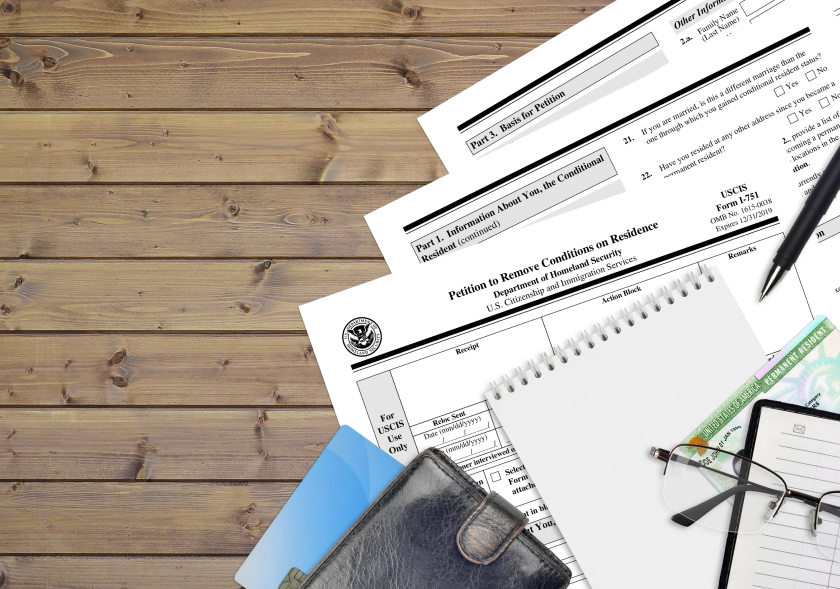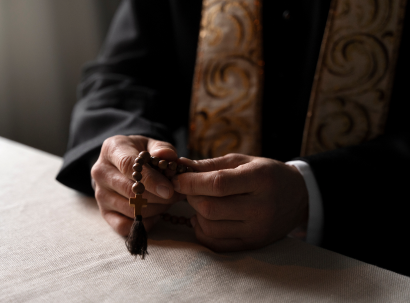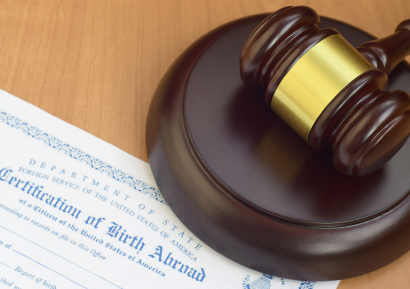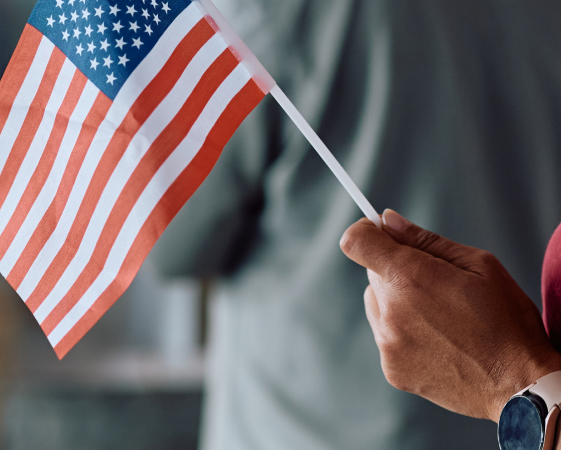
For many U.S.-born citizens, a birth certificate is the most commonly accepted document to prove citizenship. However, not everyone has easy access to their birth certificate, and some may not have one at all. Whether your birth certificate was lost, destroyed, or never issued, it can be concerning to wonder how you'll prove your citizenship. Fortunately, there are alternative methods for establishing proof of citizenship, and understanding these options is crucial when facing this issue.
In this guide, we'll explore how to prove your U.S. citizenship without a birth certificate, including alternative documents that can serve as proof, steps to obtain missing documentation, and how to move forward if you can't find your birth certificate.
A birth certificate serves as official proof of your identity and place of birth. For individuals born in the United States, it is the primary document that shows U.S. citizenship. This document is often required when applying for passports, Social Security benefits, driver's licenses, and other government-issued identification.
If you're in a situation where you can't find your birth certificate, you may be unsure how to provide the necessary proof of citizenship, particularly for official purposes like obtaining a passport, enrolling in school, or securing government benefits. While a missing birth certificate can be problematic, it is not an insurmountable obstacle.
-A8RK9LmP52OpDsjQHII4N57NP6KbvJ.png)
If you were born in the U.S. but don't have a birth certificate, there are several reasons this could happen:
Whatever the cause, understanding your options for proving citizenship without a birth certificate is important when moving forward. Fortunately, there are alternative proof of citizenship documents that can serve as a substitute.

If you were born in the United States but don't have a birth certificate, there are several documents that may be accepted to prove your citizenship. Some of these include:

If you were baptized or had other religious rites performed soon after birth, a baptismal certificate or other church records that list your date and place of birth may serve as evidence of your citizenship.
-Cqi7qvQsRiD2EThIVT38t1lJoXEmfe.png)
Records from the hospital where you were born can sometimes substitute for a birth certificate. These records can be obtained by contacting the hospital directly, and they should include the name of the institution, date of birth, and place of birth.
-G7BusgAyBb9Zl7TFwXfq6pShsSG1Kw.png)
U.S. census records that document your place of birth can also serve as proof of your citizenship. These records may not provide as much detail as a birth certificate but can help establish your identity and birth location.
-SAaFab64nVRbhGFpIc1Q7pIaN0vb8X.png)
Documents from your early school years may also be used. These records, often collected at the time of enrollment, can include your date of birth, place of birth, and the names of your parents, which can serve as supporting evidence of citizenship.
-p1JAXOIeGNztjDRsnXd243guicf0m4.png)
Sworn affidavits from close family members or friends who were present at the time of your birth can sometimes be used as evidence to prove your citizenship. The affidavits must be notarized and include details about the location and circumstances of your birth.
-8ynlXL09bTcmO9Np9IFwYIOmGwwaKf.png)
If you've previously been issued a U.S. passport, it serves as a recognized proof of citizenship. Although you'll need alternative documentation to apply for a new passport if you don't have a birth certificate, an expired passport remains an important document that establishes your U.S. citizenship.
Now that we've explored some of the alternative proof of citizenship documents, let's walk through the steps you can take to prove your U.S. citizenship when you don't have a birth certificate.

Before moving on to alternative methods, it's worth making an effort to locate your birth certificate. If you can't find it among your personal documents, try contacting the vital records office in the state or county where you were born. You can typically order a certified copy online, by mail, or in person. If you have relevant details in their system, this will be the easiest solution.
-tyTuV2lYMZrp1VOCI409Q4EIQ5Wpby.png)
If you're unable to obtain a copy of your birth certificate, try reaching out to the hospital where you were born or the religious institution where you were baptized. Many hospitals and churches keep long-term records and may be able to provide documentation that verifies your place and date of birth.
-i9aus6dcovpo3tYFwnrkaUoXq6xhIv.png)
Collect any other records that can help prove your citizenship, including census records, school records, or affidavits from family members. While these documents may not be sufficient on their own, presenting multiple pieces of evidence will help establish your claim.
-g2MxxLabTU4T66kQmv8wKFQMM1fc6P.png)
In some cases, you may be eligible to apply for a delayed birth certificate. A delayed birth certificate is issued for individuals whose birth was not registered at the time of birth or for those who cannot provide proof of registration. Each state has different requirements for issuing a delayed birth certificate, so check with the vital records office in the state where you were born for the appropriate process.
-f95lgmxPRHEXkYqW8rJdFvrHtwokJK.png)
If you're unable to obtain any of the above documents, you may be able to apply for a Certificate of Citizenship from U.S. Citizenship and Immigration Services (USCIS). This is a document issued by the U.S. government to individuals who were born in the U.S. or acquired citizenship through parents but do not have traditional proof like a birth certificate. You'll need to provide the alternative documentation mentioned above when applying for this certificate.
-KO02lIpercdNop40pGLpnmjeugiuL9.png)
If your goal is to obtain a passport but you're struggling to provide a birth certificate, the U.S. Department of State allows applicants to submit secondary documentation. You'll need to complete a special form (form DS-10: Birth Affidavit) and provide as much supporting documentation as possible, such as hospital records, early school records, or a baptismal certificate. You'll also need to submit at least one affidavit from someone with direct knowledge of your birth (such as a parent or relative).

While it's possible to prove your U.S. citizenship without a birth certificate, you may encounter challenges along the way. Some states and federal agencies may be stricter about accepting alternative documentation, and the process can take time and effort. If you face difficulties, consider seeking legal assistance to help navigate the complexities of proving your citizenship without a birth certificate.
-CSS1NmtGYVa4hx0OIO9kBlWKQtl7ME.png)
If you're having trouble gathering proof of citizenship documents or don't know where to start, working with an experienced immigration attorney can help. A lawyer can guide you through the process, assist in gathering the necessary documentation, and represent you in interactions with government agencies. At Immigration Question, our attorneys are here to help you overcome these obstacles and ensure that you can successfully prove your U.S. citizenship.
Proving your U.S. citizenship without a birth certificate may seem daunting, but it is achievable with the right steps. Whether you're applying for a passport, proving your legal status, or facing other citizenship challenges, there are alternative methods to demonstrate that you were born in the U.S. Even if you can't find your birth certificate, other documents, such as hospital records, school records, and affidavits from relatives, can help you meet the requirements for establishing your citizenship. If you're facing difficulties or need additional guidance, the team at Immigration Question is here to assist you every step of the way.

Download the immigrationquestion.com app
Post your immigration question free
Download the immigrationquestion.com app
Post your immigration question free